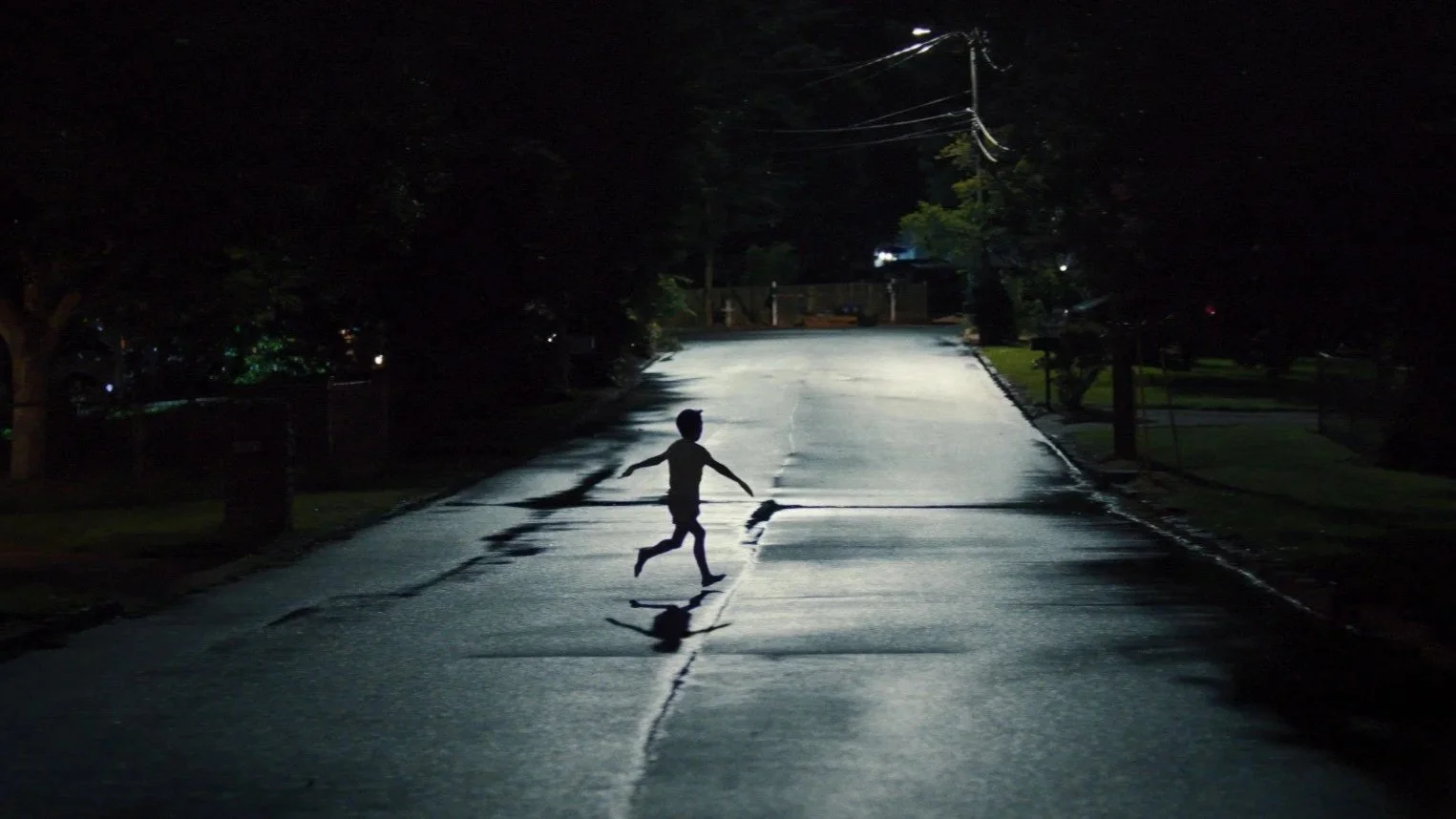Hot Docs 2023: Total Trust
Imagine you need to take your child to school, but when you look out the pinhole camera on your front door, a mysterious woman stands watch from a shadowy doorway outside. When you open the door, four other people appear and block your way. They tell you you can’t leave. They don’t explain who they are, but they don’t allow you to move and they threaten action if you do. You retreat inside and as you try to watch what they’re doing, they come up to your door and put tape over your camera so you’re left blind and trapped. This is an actual scenario that occurs to a family in Zhang Jialing’s Total Trust, a documentary about the oppressive surveillance regime that paralyzes dissidents in China.
Total Trust takes its title from an accidentally ironic comment made by a news anchor midway through the film. While discussing the draconian measures China took to combat COVID-19, the so-called “Zero COVID” policy, the news anchor mentions that public trust in the CCP is now at 98%, showing “total trust” in the government. This film is proof of the opposite.
Composed remotely, and largely relying on the film’s subjects to record themselves, Zhang’s film follows the families of human rights lawyers who were arrested during the 709 crackdown in China in the summer of 2015. These lawyers were marked as enemies of the state due to their support for Chinese citizens who petitioned the government or for making public comments critical of the regime. In the aftermath of their arrests, their families were left to pick up the pieces and cobble together an existence where their every move is watched and tracked.
Total Trust follows these families as they go about their lives, petition the government for leniency, and try to carve out a new normal amidst the constant surveillance and threats levied at them by neighbors, undercover police, and the government’s massive number of social credit “volunteers.” In the process of documenting these families’ daily realities, the film also offers something of an overview of the Chinese government’s tools of surveillance.
We learn about the biometrics tracking, which is commonplace in apartment complexes and places of work, which scan the faces and voices of citizens to allow or refuse access. We learn about the mass CCTV surveillance, with cameras on every street corner and facing every apartment or home of a suspected dissident. We see the strict “Zero COVID” measures, which force every citizen to scan their health passes to access goods such as groceries and transit.
Most chillingly, we see evidence of how the social credit system works, with people encouraged to spy on their neighbours and flag any disruptions to social stability, including anything from parking incorrectly to not having your dog on a leash to not disposing of your trash in an orderly manner. If the authorities deem your actions inappropriate, you receive a demerit in your social credit rating, which affects your ability to access goods, secure housing, and get your children into good schools. There are ways to grow your social credit rating, such as volunteering for hundreds of hours to cook for old people and clean up neighbourhoods, but vastly more ways to lose your social credit. It creates a system of total control, one that is as suffocating for its psychological control as it is for the material constraints that it places on citizens.
Total Trust sheds light on the human experiences and frustrations created by these larger social control systems. Despite the focus on social structures and constraints the film is intimately concerned with these families and the emotional experiences of living under them. It shows the desperation with which a son longs to see his father, having no memories of him since his dad was arrested when he was two years old. It shows the atmosphere of paranoia that prevails when a social credit officer accosts an old lady for “suspiciously” taking out her garbage in the middle of the day. Most stressfully, it shows the lack of options available to these individuals, who petition the government, ask family and friends for support, and get broad statements of support from foreign diplomats, all to remain helpless when up against the police officers and informants that harass them every day.
Whenever I watch a film that’s critical of China, I’m always extra concerned about the film being used as anti-Chinese propaganda. However, I never got this sense with Total Trust, despite its critical view of Chinese government policy. The film is more about empowering Chinese citizens and telling their stories than whipping up foreign support or mobilizing anti-CCP policy. It’s surprisingly not a polemic. Rather, Total Trust tells a story of harassment, injustice, and resilience that offers a human face and emotional relatability to the stories that dominate the political discourse about surveillance and China’s role in the modern world.
8 out of 10
Total Trust (2023, Germany/The Netherlands/China)
Directed by Zhang Jialing.



Paul Thomas Anderson has produced a rousing, riveting genre picture with One Battle After Another.